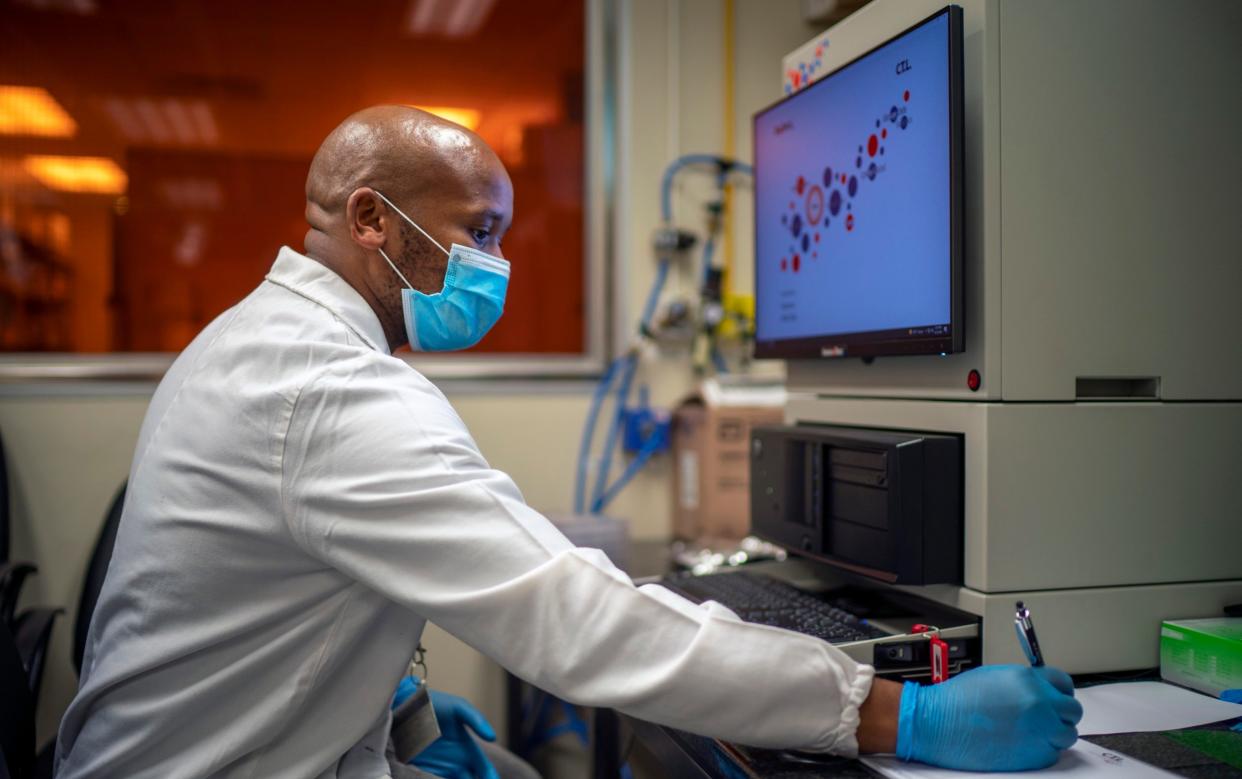Omicron spreads 70 times faster in airways than delta but 10 times slower in lungs

Omicron multiplies 70 times faster in the airways than delta yet replicates 10 times more slowly in the lungs, which may explain why it is very transmissible but less severe, scientists have said.
Researchers at the University of Hong Kong studied how quickly the virus replicates in bronchial and lung tissue in the lab.
They discovered that the virus was capable of replicating far faster in the bronchus - the tubes that attach the windpipe to the lungs - with more infection present after just 24 hours than delta produced after two days.
However, the research showed the virus struggled to reproduce efficiently in lung tissue, which may explain why people are experiencing cold-like symptoms, but few cases are progressing to serious disease.
Dr Michael Chan Chi-wai, the principal investigator, said the research may suggest omicron is less severe, but warned that a very transmissible variant could lead to more deaths, even if it was milder.
“It is important to note that the severity of disease in humans is not determined only by virus replication but also by the host immune response to the infection, which may lead to dysregulation of the innate immune system, such as a cytokine storm,” said Dr Chan.
“It is also noted that, by infecting many more people, a very infectious virus may cause more severe disease and death even though the virus itself may be less pathogenic.
“Therefore, taken together with our recent studies showing that the omicron variant can partially escape immunity from vaccines and past infection, the overall threat from the omicron variant is likely to be very significant.”
On Wednesday, Dr Meaghan Kall, an epidemiologist at the UK Health Security Agency, said that care homes and hospital wards were seeing 50 to 80 per cent of people infected - levels not seen since before the vaccination programme began.
But she added: “They are mostly asymptomatic and mild infections. I remain optimistic about omicron being milder.
“I think there’s cause for concern, but it hinges on how vaccines hold up against severe disease. And we don’t have much solid evidence on that.”
So far, despite a surge in cases, there have currently been just 11 people admitted to hospital with confirmed omicron, five suspected cases and just one death.
‘Is it good or bad news? I simply don’t know’
Commenting on the Hong Kong study, Dr Muge Cevik, an infectious diseases researcher from the University of St Andrews, said: “For those asking whether this is good or bad news, simple answer: I don’t know. While omicron may infect the lung cells less efficiently, a higher viral load may worsen immune response.
“The only thing I am sure of is that omicron will spread so quickly through the population, making it likely impossible to contain even with the most stringent measures and giving us very little time over the next few weeks. So get your vaccines and boosters.”
In South Africa, which has seen a large wave of omicron, there have also been far fewer deaths than previous waves.
The first major real-world study into the new variant published by South African scientists earlier this week found the variant is likely to be 23 per cent less severe than delta with vaccines still offering good protection
A study of more than 78,000 omicron cases in South Africa recorded between November 15 and December 7, also found that the Pfizer jab still offers 70 per cent protection against hospitalisation after two doses.
The research showed that compared with the first Wuhan strain, the virus led to 29 per cent fewer admissions to hospital, with 23 per cent fewer hospital admissions compared to delta.
Far fewer people also needed intensive care from omicron, with just five per cent of cases admitted to intensive care units compared with 22 per cent of delta patients.

